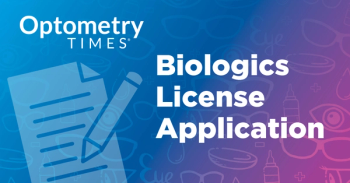
UK study reinforces optometrists’ competency in delivering SLT
When audited after completing an education training on the delivery of laser treatments found that optometrists specializing in glaucoma were competent in providing pre- and post-treatment care.
A recent UK study evaluating the need for standardized laser training courses for non-medical professionals outside of ophthalmic practitioners found that optometrists were successfully able to take on additional workload by delivering laser treatments, including selective laser trabeculoplasty (SLT). The study followed an education and training program on the delivery of lasers, including selective laser trabeculoplasty (SLT), developed by Moorfields Eye Hospital and University College London’s Institute of Ophthalmology.1
“The delivery of glaucoma care is changing fast, with more non-medical ophthalmic practitioners successfully and efficiently involved in the care of patients diagnosed with glaucoma … Early results indicate that trained optometrists follow the relevant clinical protocols and deliver safe laser treatments,” the authors, led by first author Evgenia Konstantakopoulou, stated. “Despite an initial investment of time, trained optometrists can take on significant clinical load, working autonomously.”
The study cited that there is both a lack of standardized quality-assured laser training for both non-medical professionals and ophthalmology in vivo training. With over 13000 SLT treatments taking place in the UK in 2022-2023, the study authors noted that appropriately trained healthcare professionals are increasingly in demand.1
The training course included online asynchronous lectures, a practical training day, a work-based learning and assessment, and finished with a self-audit and reflective statement from the training participants. The goal of the training was to comprehensively teach ophthalmic healthcare professionals to competently deliver SLT including pre- and post-treatment care. Requirements for participating in the training was a minimum of a BSc in optometry, orthoptics, or nursing with ophthalmic specialty training equivalent to OPT level 3, the College of Optometrists Glaucoma High Certificate or an equivalent qualification and experience, and certified gonioscopy competency and independent prescribing qualifications.1
A clinical audit was completed on the first 6 optometrists undergoing the training, which were all glaucoma specialists and completed 240 laser procedures. A total of 100% compliance with procedures was observed, which included a risks and benefits discussion, the consent procedure, and the correct prescribed post-laser medication.1
That compliance involved IOP being checked 1 hour post-treatment in 99.6% of cases, with 96.7% of eyes were give g. Apraclonidine 1% pre-treatment, and 69.6% of the eyes had a gonioscopy performed before SLT delivery. Of the 240 procedures, 1 eye (0.4%) developed post-laser corneal haze and 1 eye (0.4%) developed cystoid macular oedema, both of which were resolved with appropriate treatment. No permanent effects on vision was observed. Additionally, a total of 9 eyes (3.7%) had an IOP spike, defined as IOP>30 mmHg.1
“The audit performed at Moorfields Eye Hospital for 6 glaucoma-specialist optometrists having undertaken the structured course described here indicates that optometrists deliver safe treatments, whilst adhering to local protocols,” the study authors stated, adding that further studies on the efficacy of optometrist-delivered SLT are needed.
Currently, hospital optometrists are involved in almost 90% of glaucoma clinics in the UK.
Reference:
Konstantakopoulou E, Varia J, Parmar J, et al. Optometrist-delivered selective laser trabeculoplasty in the HES — a training protocol and early service evaluation. Eye. 2024.
https://doi.org/10.1038/s41433-024-03086-1
Newsletter
Want more insights like this? Subscribe to Optometry Times and get clinical pearls and practice tips delivered straight to your inbox.










































